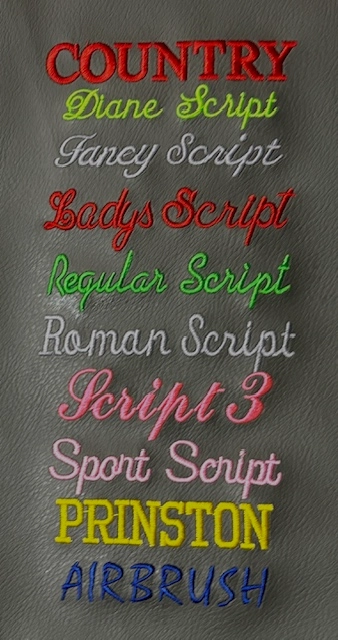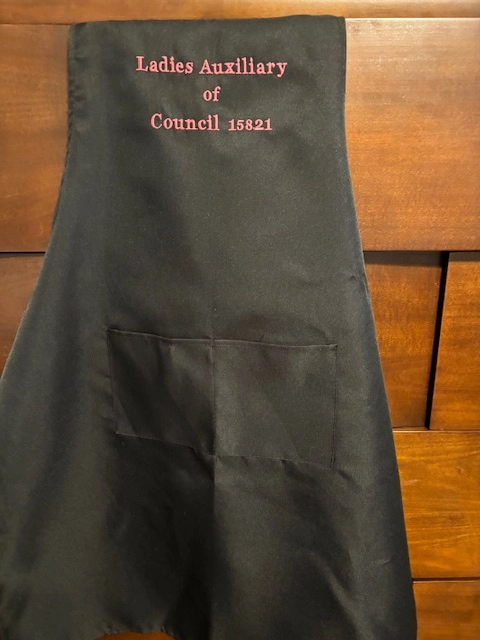The Art of Custom-made Embroidery: Unlocking the Secrets to Creating Distinct and Unforgettable Styles
Needlework, a craft soaked in practice and artistry, holds within its intricate stitches the power to transform textile right into a canvas of one-of-a-kind expression. The keys to developing custom needlework designs that captivate the eye and leave a lasting impression hinge on a fragile equilibrium of strategy, creative thinking, and focus to information. As we dive into the world of custom needlework, we reveal the nuanced interaction between string choice, stitch complexity, and layout customization that boosts a plain garment to a job of art. Join us on a journey through the art of custom needlework as we unravel the mysteries behind crafting absolutely remarkable and unique developments.
Picking the Right Needlework Threads
When choosing embroidery threads, what essential variables should you consider to guarantee the finest results for your personalized styles? The option of embroidery thread is essential in figuring out the final end result of your stitched layout.
Furthermore, the weight or density of the string plays a considerable role in the look of the needlework. Thicker strings can add dimension and structure to your style, while finer threads are perfect for elaborate details and tiny message. Additionally, considering the shade fastness and washability of the string is important to guarantee that your custom-made designs maintain their top quality and vibrancy with time. By very carefully examining these aspects and picking top notch threads that meet your details demands, you can improve the aesthetic charm and longevity of your stitched developments.
Checking Out Various Stitch Methods
To look into the realm of 'Exploring Various Stitch Techniques', one have to understand the details and nuances that each sewing method offers the art of embroidery. Different stitch strategies not just include visual rate of interest but likewise add to the overall structure and dimension of the style. One preferred stitch technique is the satin stitch, which includes carefully jam-packed parallel stitches to develop a smooth and glossy surface, suitable for filling out forms and producing vibrant describes.
On the various other hand, the backstitch is a functional method often used for detailing and including great information. It entails sewing backward to produce a solid line of needlework. In addition, the French knot stitch includes a tactile aspect to styles, excellent for developing textured accents like flower facilities or attractive touches.
Discovering different stitch techniques allows embroiderers to have fun with light, darkness, and deepness within their styles, boosting the aesthetic allure and imaginative high quality of their needlework jobs. By grasping different stitching approaches, one can open countless opportunities for developing one-of-a-kind and remarkable custom needlework pieces.
Incorporating Personalized Style Aspects
Having checked out the details of various stitch techniques such as the satin stitch, backstitch, and French knot, the emphasis now shifts in the direction of incorporating personalized layout aspects in custom needlework projects. Personalized design aspects play an essential duty in making embroidery tasks genuinely unique and unforgettable.
One more means to integrate tailored style elements is by including signs or motifs that hold unique definition to the recipient or show their passions and personality. Incorporating a favorite blossom, animal, or hobby-related sign can make the needlework design much more purposeful and individualized. Furthermore, picking shades that resonate with the recipient or line up with the desired theme can even more improve the customization of the embroidery project.
Grasping the Art of Shade Coordination

One key element of color coordination is comprehending shade theory. This includes recognizing how different colors connect with each other, the emotions they share, and how they can be integrated to create aesthetically appealing styles. By using shade concept principles, embroiderers can produce harmonious color schemes that boost the overall look of the style.
Additionally, taking notice of comparison is essential in shade control. Making use of contrasting shades can assist specific components of the layout pop, improve legibility, and develop a visually vibrant needlework item. By understanding the art of color sychronisation, embroiderers uni tailor can raise their layouts and develop remarkable items that resonate with clients and visitors alike.
Enhancing Structure With Advanced Embroidery Stitches

French knots, for instance, are perfect for including small, raised dots to your layout, simulating the appearance of grains or developing a distinctive surface area. Bullion knots, on the various other hand, can be used to create twisted, ropelike aspects that add a luxurious feeling to the embroidery. Seed stitching involves tiny, scattered stitches that can complete areas with a multicolor structure, while turkey work creates fluffy, dimensional accents reminiscent of animal fur or vegetation. Trying out with these innovative needlework stitches permits you to press the limits of conventional embroidery and create truly unique and visually enticing appearances in your styles.
Verdict
To conclude, the art of custom-made embroidery entails a combination of choosing the appropriate strings, exploring numerous stitch strategies, integrating individualized style elements, grasping color control, and improving texture with advanced stitches. By recognizing and carrying out these crucial elements, embroiderers can produce unique and remarkable styles that showcase their imagination and skill. Embroidery fanatics can unlock the keys to producing beautiful and custom pieces that stand apart and leave a lasting perception.
Comments on “Personalized School Uniforms with High-Quality Embroidery Solutions”